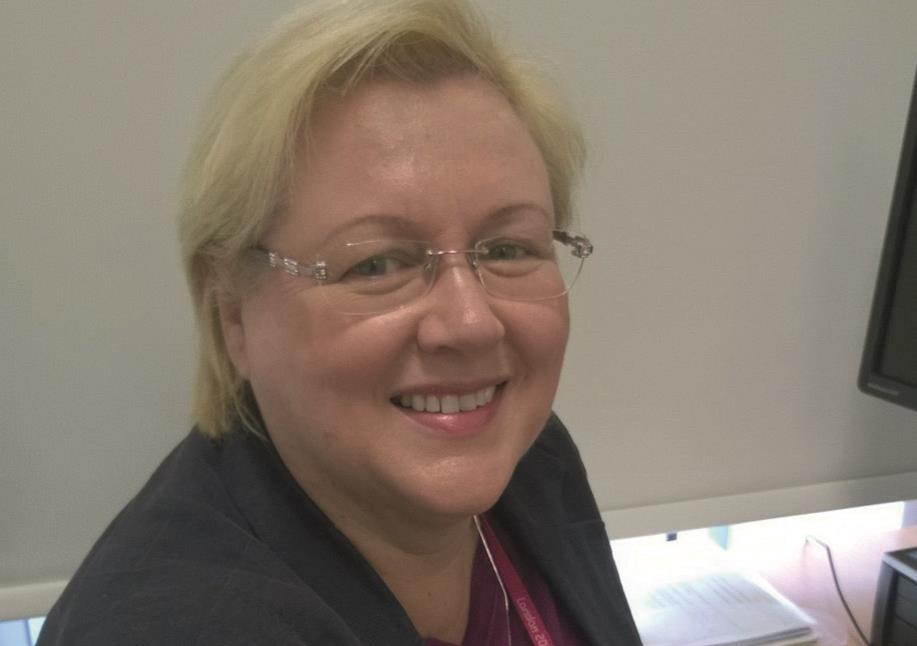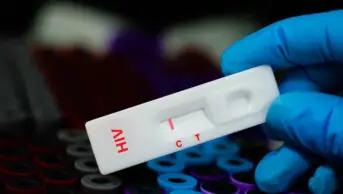
Participation in sport has huge benefits, not only in increasing people’s fitness but also in raising their confidence and self esteem. As a pharmacist and a mother of children involved in sport, becoming a doping control officer (DCO) appealed to me because I wanted my daughters to be involved in drug-free sport.
Learning about the role
In 1990, I attended a sports medicine lecture and I first heard of a doping control programme designed to reduce the use and impact of drugs in sport. Getting involved with this was an ideal way for me to make a contribution to sport, particularly because I was not excited by the prospect of raking the sandpit or setting out hurdles in the rain.
I was initially part of the programme run by the Sports Council in Scotland. Over the years this has evolved and UK Anti-Doping now runs all of the activities in the UK.
Doping control officers are responsible for the collection of a urine sample from the athlete both during competition events and in the training (or “out-of-competition”) phase for elite athletes. This role requires a great deal of sensitivity, tact and professionalism. It involves ensuring the integrity of the sample taken under supervision to dividing the sample into two bottles, and maintaining a robust chain of custody to transfer it to an International Olympic Committee-accredited laboratory for analysis.
This is not a full-time role and the DCOs undertake these duties in their spare time, in addition to their day jobs. Part of the satisfaction and enjoyment comes from working as part of a team with people from a wide range of different professional backgrounds.
Using my experience as a pharmacist
Control officers have to deal with athletes and support staff who may be ecstatic or in the depths of despair depending on the outcome of their events. I found that my experience as a pharmacist prepared me well for this work because the skills required for both roles, such as “sound judgement and decision-making ability”, are closely aligned (see ’Skills wanted’). Four of the DCOs in Scotland are women, two of whom are pharmacists.
Panel 1: Skills wanted
UK Anti-Doping, the body responsible for doping tests in sport, requires a specific set of skills:
- Ability to carry out detailed administrative tasks with a high degree of accuracy
- Proven ability to work with confidential information
- Sound judgement and decision-making capability
- Ability to use own initiative within a procedural framework
- Conflict management skills in a stressful environment
- Organisational skills of people and activities
Globe trotter
I have been part of many major sporting events. I have travelled to Barcelona, Jersey, Majorca, Manchester, Vancouver and London as a member of the antidoping team. I am looking forward to participating as a DCO in my home city of Glasgow at the Commonwealth Games.
At the Winter Olympics in 2010 the addiction services team in Vancouver agreed to host a visit for me because of my day job as lead pharmacist for addiction services in NHS Greater Glasgow and Clyde. This included a trip to the supervised injecting centre in the downtown eastside of Vancouver, an area with a serious drugs problem.
In 2006, I was invited to speak about drugs in sport and non-medical prescribing at the Caribbean Association of Pharmacists annual conference in St Kitts and Nevis. This provided an opportunity to see the diverse range of pharmacy services in that part of the world. For example, at that time injecting drugs was rare because of widespread ‘needle phobia’. Pharmacists were actively involved in helping patients, including those with diabetes, to overcome this fear and get the maximum benefit from prescribed injections.
Clean winners
Although the work of a DCO is tiring — the days are long and unpredictable and we are often the last people to leave any venue late at night — it is rewarding. I believe I am making a significant contribution to promoting drug-free sport, which is the type of sport that I want to watch and that I want my family to be involved in.
The feeling of participating in a major sporting event was summarised well by Maria Skouroliakou, superintendent pharmacist from the Athens Olympics, who said: “Strolling in the streets of the Olympic Village we had the feeling that we were citizens of the world. People from different countries and cultures had come together in one place in a great celebration, drawn by the Olympic ideals of fair play and the Olympic truce.”
Panel 2: Employment history
1978–1979 Preregistration training, Stirling Royal Infirmary, Scotland
1979–1981 Pharmacist and manager, RG Drummonds Ltd, Falkirk, Scotland
1981–1990 Locum pharmacist, community and hospital
1990–1999 Community pharmacy proprietor, Plean Pharmacy, Scotland
1999–2002 Locum pharmacist, community and hospital
2002–2003 Addictions pharmacist, Greater Glasgow Primary Care NHS Trust
2003 to date Area pharmacy specialist, drug misuse. Greater Glasgow NHS Board (Following reorganisation in 2004 this post became lead pharmacist for addiction services in NHS Greater Glasgow and Clyde)


